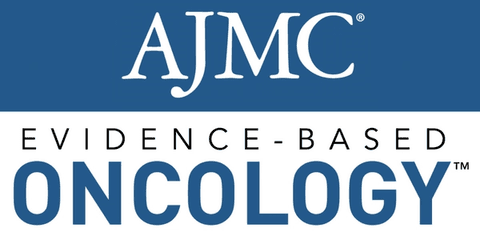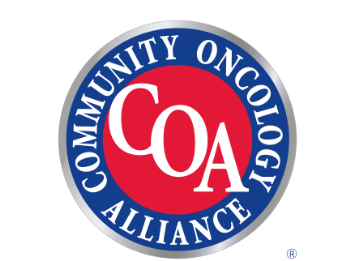- Center on Health Equity & Access
- Clinical
- Health Care Cost
- Health Care Delivery
- Insurance
- Policy
- Technology
- Value-Based Care
Most Popular Articles of 2024 in Evidence-Based Oncology
Prior authorization, PBM reform, and payment for patient navigation were topics of the most popular articles in EBO in 2024.
Prior authorization. Pharmacy benefit manager (PBM) reform. Payment for patient navigation.

Some of the most talked about issues in oncology care—indeed, all of health care—were top of mind in 2024 for readers of Evidence-Based Oncology™ (EBO), the multistakeholder publication of The American Journal of Managed Care®.
EBO’s mission to bring readers news and commentary that reflects current cross-cutting issues for providers, payers, and policy leaders is reflected in what articles were the most read in the past year. Here are the top 5 most-read pieces of the year:
5. Rule Change for Patient Navigation Billing Is a Boon to Oncology Care, Practice Leaders Say
From our February issue, this article featured interviews with navigators and managers from leading oncology practice networks on the potential impact of a CMS rule change that would, for the first time, create billing codes for patient navigation—or Principal Illness Navigation (PIN) services. Although heralded as a long-overdue recognition of the importance of navigation in cancer care, the rule change has also received feedback that it needs work, notably to allow for telehealth services. The challenges of the current PIN codes were explored in detail in September at AJMC’s premier event, Patient-Centered Oncology Care®.
4. Amid Rising Complaints About Prior Authorization Under Medicare Advantage, New Rule Leaves Gaps
Debra Patt, MD, PhD, MBA, FASCO

This article from our April issue addresses another example where CMS’ good intentions fall short: in this care, a rule change to rein in abuses of prior authorization (PA) by Medicare Advantage (MA) plans. Bipartisan agreement that MA plans were using the PA process to block patients from getting care to which they were entitled did not prevent the rule from leaving out a huge area of contention—use of PA to limit access to life-saving cancer drugs. That same month, Debra Patt, MD, PhD, MBA, FASCO, now president of the Community Oncology Alliance, offered a recap of her testimony in the Senate in which she shared an account of being told she might have to wait up to 6 weeks for a peer-to-peer review involving one of her patients with breast cancer.
3. NCCN Guidelines Update Adds Mirvetuximab Soravtansine Plus Bevacizumab for FRα-Expressing, Platinum-Sensitive Ovarian Cancer

Also from our February issue, this article reported on the National Comprehensive Cancer Network (NCCN) update to its clinical guidelines for the treatment of ovarian cancer. Mirvetuximab soravtansine (Elahere; Immunogen) plus bevacizumab was added to the NCCN Clinical Practice Guidelines in Oncology as a 2B recommendation for patients with platinum-sensitive ovarian cancer and folate receptor alpha (FRα)-expressing tumors. The update also changed mirvetuximab soravtansine plus bevacizumab from a category 2B to a category 2A recommendation for platinum-resistant ovarian cancer with FRα-expressing tumors. FDA granted accelerated approval to mirvetuximab soravtansine for women with platinum-resistant, FRα-positive advanced high-grade epithelial ovarian, primary peritoneal, or fallopian tube cancers in November 2022. Positive results from the confirmatory MIRASOL trial confirmed the antibody drug conjugate confers progression-free survival and overall survival benefits compared with previous standards of care.
2. Cancer Drugs Speed to Accelerated Approvals, Then Hit the Brakes in Timely, Clinically Beneficial Confirmatory Trials
Terra Wontsettler, PharmD, MBA

This commentary by Evolent’s Terra Wontsettler, PharmD, MBA, explores the 30-year history of FDA’s accelerated approval pathway, which have allowed patients to gain early access to 278 drugs that fulfilled unmet needs. About a third of all oncology drugs now receive initial approval this way, and the pathway has come under scrutiny following some high-profile withdrawals of some indications after results did not hold up in confirmatory trials. As Wontsettler explains, the accelerated approval is the beginning, not the end of the journey, and health plans have a critical role to play.
In Wake of Express Scripts Suit, FTC Takes On 3 Largest PBMs.

This article, which appeared online first and then in our October issue, remains as timely as 2024 concludes as it was when it appeared. The Biden administration Federal Trade Commission, on the heels of its interim report on PBM practices, answered a strike by ExpressScripts with a lawsuit accusing the largest PBMs of forcing patients to pay higher costs on insulin products to increase their profits. EBO featured reactions from COA, which has helmed the debate over PBM practices since its inception, due to the effects on oncology practices and patients.
As 2024 drew to a close, bipartisan frustration with PBM practices fueled a health care transparency package, with President-elect Donald Trump making several statements about reforming “middlemen” practices. However, the PBM reform measures died when the original continuing resolution to keep the government open was replaced with a stripped-down version, which President Joe Biden signed Saturday. Some observers believe PBM legislation seems likely to come in early 2025, but others see these entities as "cats with 9 lives" that continue to elude reform efforts.
Exploring Racial, Ethnic Disparities in Cancer Care Prior Authorization Decisions
October 24th 2024On this episode of Managed Care Cast, we're talking with the author of a study published in the October 2024 issue of The American Journal of Managed Care® that explored prior authorization decisions in cancer care by race and ethnicity for commercially insured patients.
Listen
